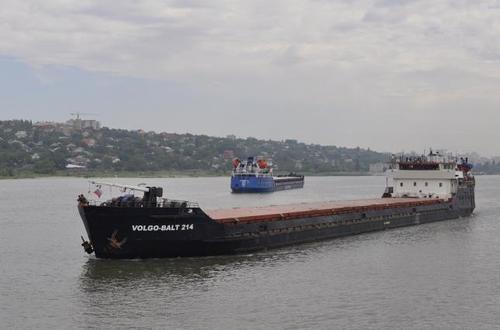ÐÎÑÑÈÉÑÊÈÉ ÏÐÎÔÅÑÑÈÎÍÀËÜÍÛÉ ÑÎÞÇ ÌÎÐßÊÎÂ
SEAFARERS' UNION OF RUSSIA
A NON-UNIONIZED SEAFARER
IS AN UNPROTECTED SEAFARER
Back
VOLGO-BALT 214 tragedy is a face of shipping in the Black Sea

The Volgo-Balt 214 disaster, claiming the seafarers' lives, has uncovered the shipping problems of the Black Sea, which is well-known among the unions and seafarers as a “sea of shame”.
The river-sea Volgo-Balt 214, flying under flag of Panama, sank off Turkey on January 7, 2019. The bulker was heading to Samsun from Azov, Russia. After wave striking, Volgo-Balt 214 broke in two near the Turkish coast. There were 13 crews, but only seven were saved. The search and rescue operations keep going.
Volgo-Balt 214 was built in 1978. An infamous Turkey-based Orbital Ship Management became her last operator. By the way, the Turkish companies often buy the old Soviet-time vessels and operate them to the utmost in the Black Sea.
According to Equasis, Volgo-Balt 214 underwent last PSC inspection in the Port of Azov on December 23, 2018. At the time the inspectors found only seven deficiencies which seemingly didn't prohibit the ship to go into the fatal voyage.
Based on the Volgo-Balt 214 crew list, published in Internet, there were two welders onboard, but it was extremely untypical for such small ships. If the vessel was required two welders, the ship had terrible technical condition. More likely, the holes were patching during the voyage.
Volgo-Balt 214 tragedy is a face of shipping in the Black Sea, which was named as a “sea of shame”. Ships, operating in its waters, do not meet safety requirements and should be out of service long ago. In addition, the ships aren't covered by the ITF collective agreement and, as a result, the crews aren't able to rely on normal labour conditions or wage guarantees or compensation payments.
The Orbital Ship Management fleet consists of six Panama-flagged vessels: 1979-built Volgo-Balt 217, 1981-built Volgo-Balt 235, 1978-built Volgo-Balt 213, 1979-built Volgo-Balt 220, 1980-built Volgo-Balt 226 and 1980-built Volgo-Balt 227.
“All these vessels several times changed their flags, companies or class societies. Most of them were detained by port control authorities. Since 2014 crews of above mentioned vessels repeatedly have applied for help from the International Transport Workers' Federation,” Olga Ananina, the ITF inspector in Novorossiysk, comments. “Today the bulkers operate under flag of Panama and under control of Orbital Ship Management. All ships are old and problematic.”
According to the ITF data base, the ITF inspectors in the Black Sea region, including from Turkey, Georgia, Ukraine and Russia, took part in giving support to the crews working on the Volgo-Balt fleet. “The wage debts, low wage levels not exceeding the ILO rates, lack of provision, water, working wear or cleaning materials – all of these are normal for the rust buckets which sink every winter claiming seafarers' lives,” - Ananina says.
The Seafarers' Union of Russia strongly recommends to shy away from hiring on these ships. All these bulkers pose a danger to navigation safety and seafarers lives.
Up
